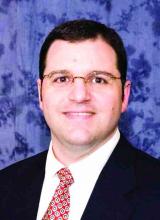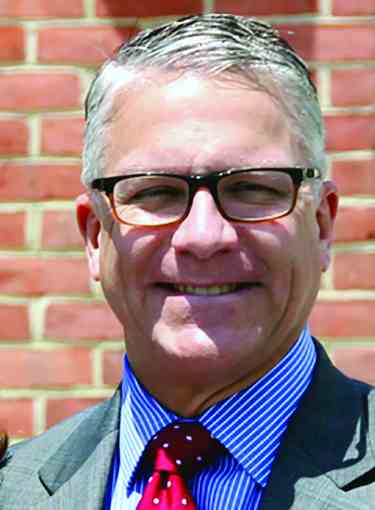User login
Caval interruption, typically by the installation of a filter, traps dislodged blood clots in the inferior vena cava, before they can reach the heart and lungs. The strategy will be the topic of the second half of the Friday afternoon session entitled “Endovascular and Open Solutions for Inferior Vena Cava Tumors and Occlusions, Vena Cava Filtration Strategies, Pitfalls, and Complications and More About Iliac Vein Stenting.”
The first half of the session will focus on the general topic of interventions of the inferior vena cava. This will include everything from percutaneous recanalization for occluded IVC filters to open and robotic vena cava reconstruction for the removal of benign and malignant tumors. The second half will cover the current controversies involving inferior vena cava filter indications for placement, retrieval, and the management of their complications.
“Session attendees will be able to understand current methods and indications for IVC filter placement, follow-up and retrieval. In addition, they will get an update on current research to improve the care of our patients requiring IVC interruption. The session will aid practitioners to better understand the requirements for open and endovascular management of vena cava tumors and obstruction,” said Dr. Gillespie.
Dr. John Rectenwald, the co-moderator, will consider the indications for IVC filters and discuss whether these are being observed in clinical practice. He will be followed by Dr. David Rosenthal of the Medical College of Georgia, who will provide an update on the Sentry bioconvertible non-retrieval IVS filter. The Sentry device is designed to provide protection against pulmonary embolism at the time of highest risk of embolism, followed by bioconversion to leave an unobstructed IVC lumen. The next speaker will be Dr. Gillespie, who will discuss the retrieval of IVC filters and the influence on retrieval rate by the filter design, institutional practice, and the individual surgeon. Dr. Steven Abramowitz of Georgetown University School of Medicine will talk about ulcer healing and quality of life following endovascular iliocaval reconstructive stenting in patients who have both IVC and iliac occlusive disease.
Dr. Rectenwald will discuss the Prevention du Risque d’Embolie Pulmonaire par Interruption Cav (PREPIC) trial of over 400 patients randomized to receive or not receive a filter along with standard anticoagulation treatment. Recommendations regarding IVC filters have been based on the PREPIC trial and follow-up data. The follow-up data showed no survival benefit. Whether the evidence supports the use of IVC filters will be discussed. Continuing this theme, Dr. Gillespie will update the physician-initiated, Investigational Device Exemption vena cava PRESERVE study, a large-scale, multi-specialty, prospective study launched in October 2016, which is assessing the use of IVC filters in the United States. The study involves all commercially available inferior vena cava filters placed in subjects for the prevention of death from fatal or symptomatic pulmonary embolism.
IVC filters are subject to complications. How to deal with these is a major challenge. Complications and how to avoid them will be the topic of a presentation by Dr. Clifford Sales of Mount Sinai School of Medicine, and how best to deal with filters that are difficult to retrieve will be discussed by Dr. Brian DeRubertis of UCLA Division of Vascular Surgery, Los Angeles, Calif. What to do when filters actually fracture and generate embolic fragments will be the topic of a presentation by Dr. Constantino Peña, University of South Florida. Finally, Dr. Nicholas Gargiulo, III, of The Clinch Valley Medical Center will consider prophylactic caval filtration in term of bariatric surgery patients who are the best candidates.
“There are special challenges involved in the open and endovascular management of inferior vena cava problems. These represent opportunities for practitioners to grow their practice. These patients are some of the most complicated patients we care for. Their management requires advanced techniques and dedicated clinicians to their care and management,” said Dr. Gillespie.
Session 91:
Endovascular and Open Solutions for Inferior Vena Cava Tumors and Occusions, Vena Cava Filtration Strategies, Pitfalls, and Complications and More About Iliac Vein Stenting
Caval Interruption
Friday 4:00 p.m. to 4:53 p.m.
Trianon Ballroom, 3rd Floor
Caval interruption, typically by the installation of a filter, traps dislodged blood clots in the inferior vena cava, before they can reach the heart and lungs. The strategy will be the topic of the second half of the Friday afternoon session entitled “Endovascular and Open Solutions for Inferior Vena Cava Tumors and Occlusions, Vena Cava Filtration Strategies, Pitfalls, and Complications and More About Iliac Vein Stenting.”
The first half of the session will focus on the general topic of interventions of the inferior vena cava. This will include everything from percutaneous recanalization for occluded IVC filters to open and robotic vena cava reconstruction for the removal of benign and malignant tumors. The second half will cover the current controversies involving inferior vena cava filter indications for placement, retrieval, and the management of their complications.
“Session attendees will be able to understand current methods and indications for IVC filter placement, follow-up and retrieval. In addition, they will get an update on current research to improve the care of our patients requiring IVC interruption. The session will aid practitioners to better understand the requirements for open and endovascular management of vena cava tumors and obstruction,” said Dr. Gillespie.
Dr. John Rectenwald, the co-moderator, will consider the indications for IVC filters and discuss whether these are being observed in clinical practice. He will be followed by Dr. David Rosenthal of the Medical College of Georgia, who will provide an update on the Sentry bioconvertible non-retrieval IVS filter. The Sentry device is designed to provide protection against pulmonary embolism at the time of highest risk of embolism, followed by bioconversion to leave an unobstructed IVC lumen. The next speaker will be Dr. Gillespie, who will discuss the retrieval of IVC filters and the influence on retrieval rate by the filter design, institutional practice, and the individual surgeon. Dr. Steven Abramowitz of Georgetown University School of Medicine will talk about ulcer healing and quality of life following endovascular iliocaval reconstructive stenting in patients who have both IVC and iliac occlusive disease.
Dr. Rectenwald will discuss the Prevention du Risque d’Embolie Pulmonaire par Interruption Cav (PREPIC) trial of over 400 patients randomized to receive or not receive a filter along with standard anticoagulation treatment. Recommendations regarding IVC filters have been based on the PREPIC trial and follow-up data. The follow-up data showed no survival benefit. Whether the evidence supports the use of IVC filters will be discussed. Continuing this theme, Dr. Gillespie will update the physician-initiated, Investigational Device Exemption vena cava PRESERVE study, a large-scale, multi-specialty, prospective study launched in October 2016, which is assessing the use of IVC filters in the United States. The study involves all commercially available inferior vena cava filters placed in subjects for the prevention of death from fatal or symptomatic pulmonary embolism.
IVC filters are subject to complications. How to deal with these is a major challenge. Complications and how to avoid them will be the topic of a presentation by Dr. Clifford Sales of Mount Sinai School of Medicine, and how best to deal with filters that are difficult to retrieve will be discussed by Dr. Brian DeRubertis of UCLA Division of Vascular Surgery, Los Angeles, Calif. What to do when filters actually fracture and generate embolic fragments will be the topic of a presentation by Dr. Constantino Peña, University of South Florida. Finally, Dr. Nicholas Gargiulo, III, of The Clinch Valley Medical Center will consider prophylactic caval filtration in term of bariatric surgery patients who are the best candidates.
“There are special challenges involved in the open and endovascular management of inferior vena cava problems. These represent opportunities for practitioners to grow their practice. These patients are some of the most complicated patients we care for. Their management requires advanced techniques and dedicated clinicians to their care and management,” said Dr. Gillespie.
Session 91:
Endovascular and Open Solutions for Inferior Vena Cava Tumors and Occusions, Vena Cava Filtration Strategies, Pitfalls, and Complications and More About Iliac Vein Stenting
Caval Interruption
Friday 4:00 p.m. to 4:53 p.m.
Trianon Ballroom, 3rd Floor
Caval interruption, typically by the installation of a filter, traps dislodged blood clots in the inferior vena cava, before they can reach the heart and lungs. The strategy will be the topic of the second half of the Friday afternoon session entitled “Endovascular and Open Solutions for Inferior Vena Cava Tumors and Occlusions, Vena Cava Filtration Strategies, Pitfalls, and Complications and More About Iliac Vein Stenting.”
The first half of the session will focus on the general topic of interventions of the inferior vena cava. This will include everything from percutaneous recanalization for occluded IVC filters to open and robotic vena cava reconstruction for the removal of benign and malignant tumors. The second half will cover the current controversies involving inferior vena cava filter indications for placement, retrieval, and the management of their complications.
“Session attendees will be able to understand current methods and indications for IVC filter placement, follow-up and retrieval. In addition, they will get an update on current research to improve the care of our patients requiring IVC interruption. The session will aid practitioners to better understand the requirements for open and endovascular management of vena cava tumors and obstruction,” said Dr. Gillespie.
Dr. John Rectenwald, the co-moderator, will consider the indications for IVC filters and discuss whether these are being observed in clinical practice. He will be followed by Dr. David Rosenthal of the Medical College of Georgia, who will provide an update on the Sentry bioconvertible non-retrieval IVS filter. The Sentry device is designed to provide protection against pulmonary embolism at the time of highest risk of embolism, followed by bioconversion to leave an unobstructed IVC lumen. The next speaker will be Dr. Gillespie, who will discuss the retrieval of IVC filters and the influence on retrieval rate by the filter design, institutional practice, and the individual surgeon. Dr. Steven Abramowitz of Georgetown University School of Medicine will talk about ulcer healing and quality of life following endovascular iliocaval reconstructive stenting in patients who have both IVC and iliac occlusive disease.
Dr. Rectenwald will discuss the Prevention du Risque d’Embolie Pulmonaire par Interruption Cav (PREPIC) trial of over 400 patients randomized to receive or not receive a filter along with standard anticoagulation treatment. Recommendations regarding IVC filters have been based on the PREPIC trial and follow-up data. The follow-up data showed no survival benefit. Whether the evidence supports the use of IVC filters will be discussed. Continuing this theme, Dr. Gillespie will update the physician-initiated, Investigational Device Exemption vena cava PRESERVE study, a large-scale, multi-specialty, prospective study launched in October 2016, which is assessing the use of IVC filters in the United States. The study involves all commercially available inferior vena cava filters placed in subjects for the prevention of death from fatal or symptomatic pulmonary embolism.
IVC filters are subject to complications. How to deal with these is a major challenge. Complications and how to avoid them will be the topic of a presentation by Dr. Clifford Sales of Mount Sinai School of Medicine, and how best to deal with filters that are difficult to retrieve will be discussed by Dr. Brian DeRubertis of UCLA Division of Vascular Surgery, Los Angeles, Calif. What to do when filters actually fracture and generate embolic fragments will be the topic of a presentation by Dr. Constantino Peña, University of South Florida. Finally, Dr. Nicholas Gargiulo, III, of The Clinch Valley Medical Center will consider prophylactic caval filtration in term of bariatric surgery patients who are the best candidates.
“There are special challenges involved in the open and endovascular management of inferior vena cava problems. These represent opportunities for practitioners to grow their practice. These patients are some of the most complicated patients we care for. Their management requires advanced techniques and dedicated clinicians to their care and management,” said Dr. Gillespie.
Session 91:
Endovascular and Open Solutions for Inferior Vena Cava Tumors and Occusions, Vena Cava Filtration Strategies, Pitfalls, and Complications and More About Iliac Vein Stenting
Caval Interruption
Friday 4:00 p.m. to 4:53 p.m.
Trianon Ballroom, 3rd Floor


